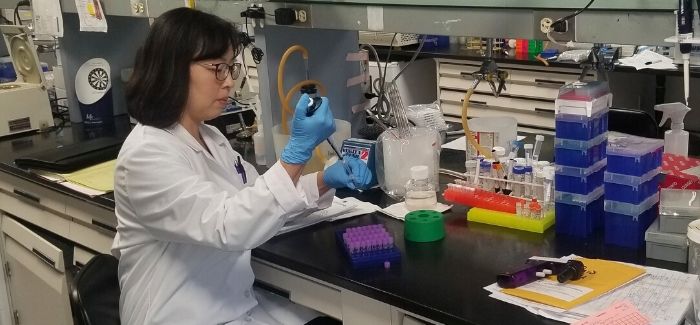Davis Lab Sheds Light on Complications From High Blood Glucose and Excess Body Fat Which Lead to Type 2 Diabetes

Chronic low-grade inflammation is a key driver of metabolic syndrome. Research in the Davis Lab aims to understand, at a cellular level, the causes of this inflammatory response. The laboratory of Roger J. Davis, PhD, FRS, studies specific immune cells and proteins and their effect on metabolism, inflammation, and obesity.
Metabolic syndrome is a cluster of conditions that, when combined, raise the risk of diabetes, heart disease, stroke, and other serious health problems. Contributing factors include high blood sugar, excess body fat around the waist, increased blood pressure, as well as abnormal cholesterol or triglyceride levels. Nearly a quarter of adults in the United States are affected by metabolic syndrome, according to the American Heart Association. The underlying causes include obesity, being overweight, lack of physical activity, genetic factors, and simply getting older. Healthy lifestyle changes such as diet and exercise, managing stress, and quitting smoking are key to preventing and treating metabolic syndrome, but sometimes medication is also necessary.
In a study published in The Proceedings of the National Academy of Sciences (PNAS), the official journal of the National Academy of Sciences (NAS), Myoung Sook Han, PhD, tested the role of specific cells using a mouse model with conditional expression of a specific hormone protein called interleukin 6 (IL-6). IL-6 is already known to regulate multiple aspects of metabolism. “Inflammation is a major factor in the development of many chronic diseases, including diabetes, cancer, Alzheimer’s, and Parkinson’s,” said Dr. Han. “It’s a key driver of metabolic syndrome, and we need to understand it better, so we can develop potential therapies.”

New data from her research show that the role of IL-6 in adipose tissue inflammation depends on the cell source of IL-6 secretion and plays a significant role in the physiological regulation of metabolism. “We know that obesity induces an inflammation in the adipose tissue [fat tissue] and also causes insulin resistance,” she said. “It wasn’t clear which cell types in that fat tissue were producing IL-6 to bring about inflammation."
New data obtained from this study will propel scientists closer to creating cell-based therapies to treat people living with metabolic syndrome or any of its associated chronic health issues.
Related Articles
Investigating a Potential Hormone Therapy for Type 2 Diabetes in the Davis Lab
Roger Davis Elected into the National Academy of Sciences
